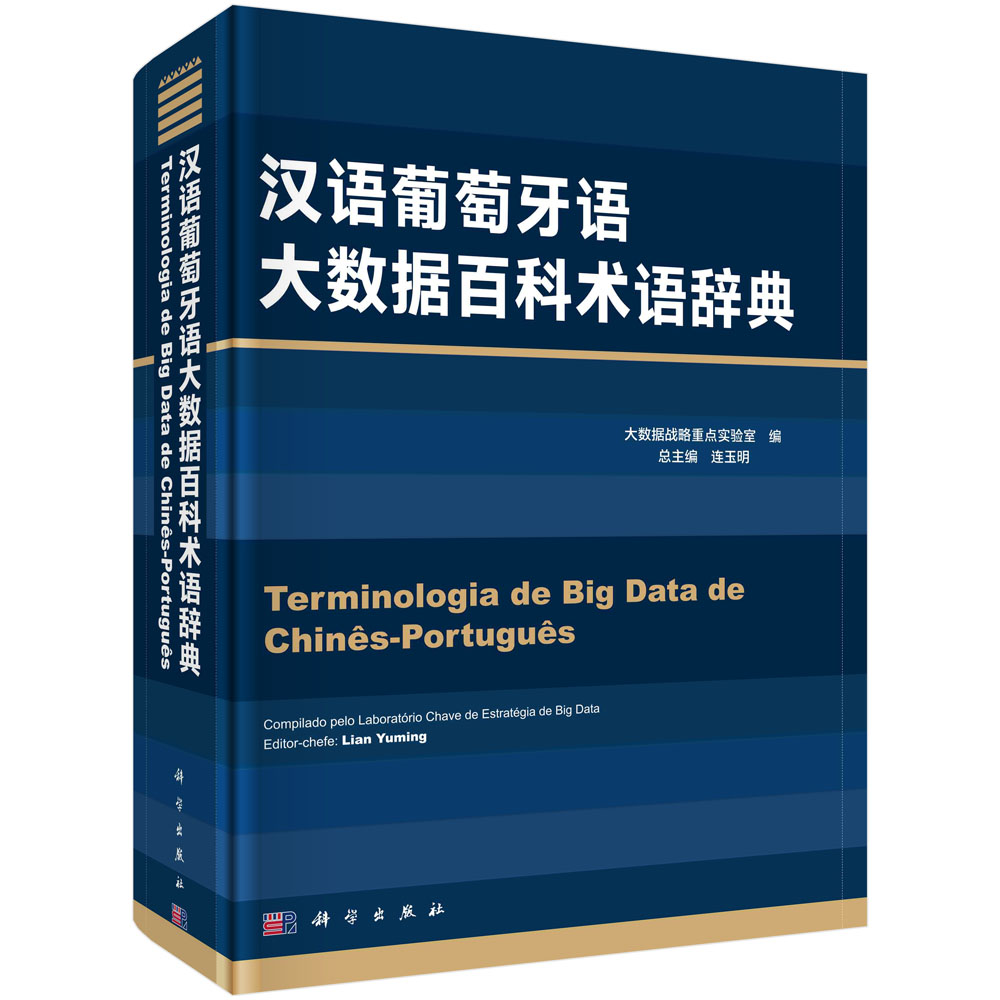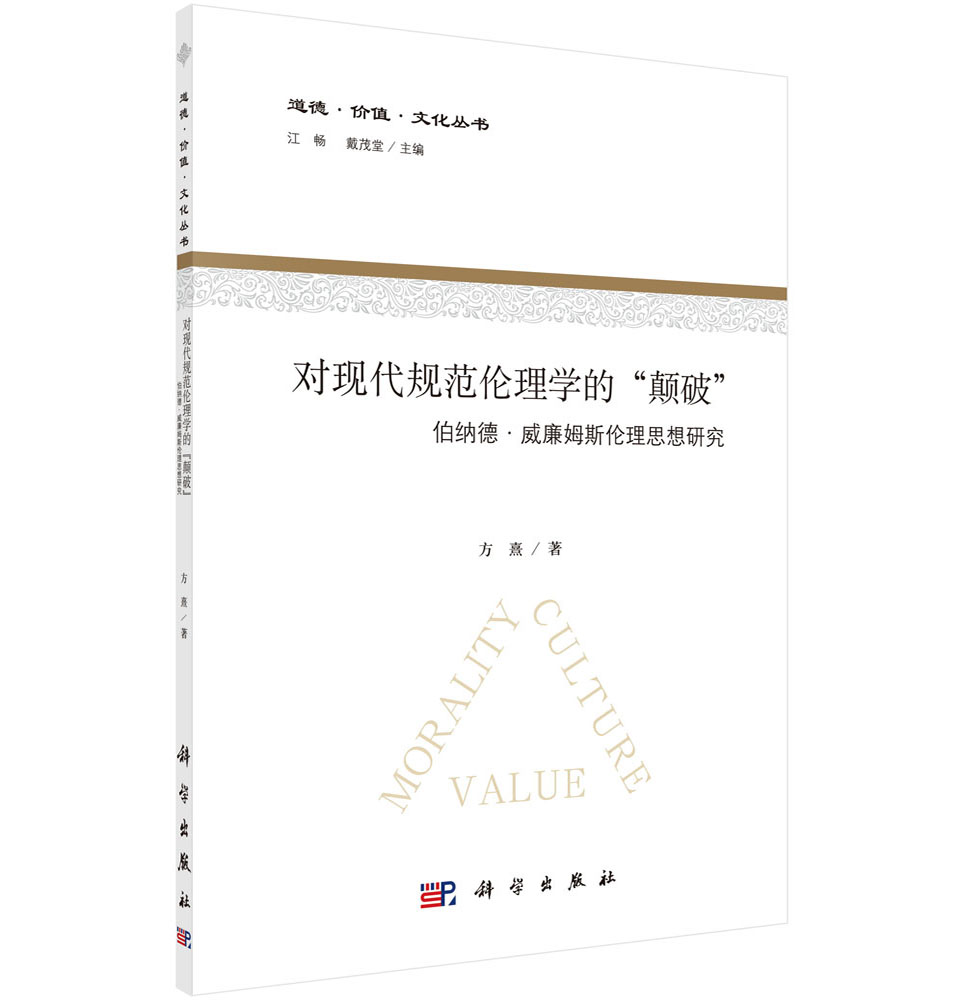《大数据百科术语辞典》汉外对照系列丛书是全球首套系统研究大数据术语的多语种智能化专业辞典。本丛书对大数据知识体系进行了全面梳理,提出了九个方面的术语架构,形成了统一规范、符合国际通用规则的多语种学术话语体系;丛书系统性提供汉语与其他二十个语种的术语规范表述,以中外文对照的形式展示;丛书开创性融入知识图谱、有声点读、平台链接功能,实现智能化、平台化、体系化的阅读体验。
样章试读
目录
- 目录
0 大数据 1
1 大数据基础 3
1.1 数据科学 6
1.1.1 数学应用 6
1.1.2 数理统计 6
1.1.3 数据运筹 7
1.1.4 社会计算 8
1.1.5 复杂[ 性] 理论 8
1.2 计算机网 10
1.2.1 信息通信 10
1.2.2 计算机系统 11
1.2.3 计算机软件 11
1.2.4 计算机硬件 12
1.2.5 先进网络 13
1.3 算法科技 14
1.3.1 计算思维 14
1.3.2 算法设计 14
1.3.3 计算理论 15
1.3.4 先进计算 16
1.3.5 计算架构 17
1.4 计算智能 18
1.4.1 知识工程 18
1.4.2 机器学习 19
1.4.3 虚拟现实 19
1.4.4 智能机器人 20
1.4.5 类脑科学 21
1.5 数据哲学 23
1.5.1 数化万物 23
1.5.2 数据伦理 23
1.5.3 数据文化 24
1.5.4 大数据论 25
1.5.5 大数据史 26
2 大数据战略 29
2.1 互联网 32
2.1.1 全球化网络 32
2.1.2 信息社会 33
2.1.3 互联网+ 33
2.1.4 网络强国 34
2.1.5 网络空间 35
2.2 块数据 36
2.2.1 数据引力波 36
2.2.2 数据价值链 36
2.2.3 数字竞争力 37
2.2.4 激活数据学 38
2.2.5 数字生态圈 38
2.3 主权区块链 40
2.3.1 区块链 40
2.3.2 区块链监管 40
2.3.3 数字法币 41
2.3.4 信用社会 42
2.3.5 秩序互联网 43
2.4 人工智能 44
2.4.1 群智开放 44
2.4.2 技术奇点 44
2.4.3 脑机接口 45
2.4.4 智能应用 46
2.4.5 人脑计划 46
2.5 量子科技 48
2.5.1 量子信息科学 48
2.5.2 量子计算 49
2.5.3 量子测量 49
2.5.4 量子通信 50
2.5.5 量子互联网 51
3 大数据技术 53
3.1 大数据采集 56
3.1.1 数据化 56
3.1.2 数据感知 56
3.1.3 数据采集 57
3.1.4 数据抓取 58
3.1.5 数据结构 59
3.2 大数据管理 60
3.2.1 数据组织 60
3.2.2 数据存储 60
3.2.3 数据库 61
3.2.4 管理系统 62
3.2.5 数据中心 63
3.3 大数据处理 64
3.3.1 数据处理 64
3.3.2 处理框架 64
3.3.3 编程模型 65
3.3.4 数据计算 66
3.3.5 数据治理 66
3.4 大数据分析 68
3.4.1 大数据统计分析 68
3.4.2 大数据机器学习 68
3.4.3 数据可视化分析 69
3.4.4 文本大数据分析 70
3.4.5 社交媒体分析 71
3.5 科学大数据 72
3.5.1 数据密集型科学 72
3.5.2 第四范式 73
3.5.3 技术开源 74
3.5.4 科学数据管理 75
3.5.5 科学数据行动 76
4 大数据经济 79
4.1 数据资本论 82
4.1.1 数据资本 82
4.1.2 数据生产力 83
4.1.3 数据交易 84
4.1.4 数字合作 84
4.1.5 共享价值 85
4.2 数字经济 87
4.2.1 产业数字化 87
4.2.2 数字产业化 87
4.2.3 数字乡村 88
4.2.4 工业互联网 89
4.2.5 共享型经济 90
4.3 场景大数据 91
4.3.1 场景应用 91
4.3.2 场景产业化 91
4.3.3 平台经济 92
4.3.4 数据中台 93
4.3.5 经济大脑 93
4.4 数字减贫 95
4.4.1 数字机会均等化 95
4.4.2 减贫合作 96
4.4.3 精准扶贫 96
4.4.4 数字化转型 97
4.4.5 社会扶贫体系 98
4.5 数字丝绸之路 100
4.5.1 数字包容性 100
4.5.2 数字经济体 100
4.5.3 智慧互通 101
4.5.4 新贸易革命 102
4.5.5 “一带一路”政策生态 103
5 大数据金融 105
5.1 金融科技创新 108
5.1.1 金融科技战略 108
5.1.2 金融生态系统 109
5.1.3 金融科技应用 110
5.1.4 金融科技支撑 110
5.1.5 金融科技赋能 111
5.2 金融科技服务 113
5.2.1 第三方支付 113
5.2.2 网络借贷 114
5.2.3 众筹融资 114
5.2.4 小微金融 115
5.2.5 金融信息服务 116
5.3 金融模式创新 117
5.3.1 平台金融 117
5.3.2 供应链金融 117
5.3.3 物联网金融 118
5.3.4 互联网消费金融 119
5.3.5 社交金融 120
5.4 金融体系创新 122
5.4.1 现代金融服务体系 122
5.4.2 数字普惠金融体系 123
5.4.3 绿色金融体系 124
5.4.4 去中心化金融体系 125
5.4.5 金融科技产业生态 125
5.5 金融科技监管 127
5.5.1 金融科技风险识别 127
5.5.2 金融科技风险防范与处置 128
5.5.3 金融科技监管制度 130
5.5.4 金融科技监管体系 130
5.5.5 金融科技国际监管 131
6 大数据治理 133
6.1 治理科技 136
6.1.1 数据开放共享 136
6.1.2 治理科技体系 137
6.1.3 块数据组织 137
6.1.4 数字孪生城市 138
6.1.5 共享型社会 139
6.2 数字政府 140
6.2.1 数字政府战略 140
6.2.2 数字政府架构 140
6.2.3 智慧治理 141
6.2.4 智慧政务 142
6.2.5 智慧监督 143
6.3 智慧城市 144
6.3.1 智能设施 144
6.3.2 智能交通 145
6.3.3 智能建筑 146
6.3.4 智能环保 146
6.3.5 智能安防 147
6.4 智慧社会 149
6.4.1 智慧医疗 149
6.4.2 智慧人社 150
6.4.3 智慧文教 150
6.4.4 智慧安居 151
6.4.5 智慧养老 152
6.5 全球网络治理 153
6.5.1 网络社群 153
6.5.2 网络行为 154
6.5.3 网络文化 154
6.5.4 网络传播 155
6.5.5 网络空间秩序 156
7 大数据标准 159
7.1 标准化基础 162
7.1.1 标准化战略 162
7.1.2 标准化发展规划 162
7.1.3 标准化机制创新 164
7.1.4 标准化组织 165
7.1.5 国际标准化活动 166
7.2 标准术语 168
7.2.1 大数据术语 168
7.2.2 云计算术语 168
7.2.3 人工智能术语 169
7.2.4 机器人术语 170
7.2.5 物联网术语 171
7.3 国家标准 172
7.3.1 基础标准 172
7.3.2 技术标准 175
7.3.3 管理标准 180
7.3.4 安全标准 184
7.3.5 应用标准 188
7.4 国际标准 191
7.4.1 国际标准化组织相关标准 191
7.4.2 欧洲标准化组织相关标准 192
7.4.3 美国标准化组织相关标准 195
7.4.4 日本标准化组织相关标准 196
7.4.5 其他国家标准化组织相关标准 198
7.5 大数据标准化 201
7.5.1 数据标准化需求 201
7.5.2 数据标准化过程 202
7.5.3 标准组织实施 202
7.5.4 数据标准化管理 204
7.5.5 标准化示范项目 205
8 大数据安全 207
8.1 安全基础 210
8.1.1 设施平台 210
8.1.2 风险识别 210
8.1.3 防范认知 211
8.1.4 黑客攻击 212
8.1.5 灾备系统 214
8.2 安全管理 216
8.2.1 安全等级保护 216
8.2.2 安全技术 217
8.2.3 信任保障 218
8.2.4 安全机制 218
8.2.5 安全中心 219
8.3 安全体系 221
8.3.1 安全框架 221
8.3.2 系统属性 222
8.3.3 风险评估 223
8.3.4 系统保护 223
8.3.5 可靠服务 224
8.4 安全防护 225
8.4.1 渗透测试 225
8.4.2 攻防对抗 225
8.4.3 安全协议 226
8.4.4 认证加密 227
8.4.5 数据靶场 227
8.5 安全战略 229
8.5.1 数据安全规划 229
8.5.2 数据恐怖主义 230
8.5.3 数据主权保护 230
8.5.4 国家网络安全 231
8.5.5 国际数据安全 232
9 大数据法律 235
9.1 数权 238
9.1.1 法律基础 238
9.1.2 数权法理 239
9.1.3 数据人假设 240
9.1.4 数据赋权 240
9.1.5 数权观 241
9.2 数权制度 243
9.2.1 数权法定 243
9.2.2 数据权利 244
9.2.3 数据主权 244
9.2.4 共享制度 245
9.2.5 数权规制 246
9.3 数权法 247
9.3.1 数权立法 247
9.3.2 数据开放立法 248
9.3.3 数据交易立法 250
9.3.4 数据安全立法 251
9.3.5 立法比较 252
9.4 数权保护 254
9.4.1 数权自律 254
9.4.2 数据秩序 255
9.4.3 数权救济 256
9.4.4 法条关联 257
9.4.5 数权保护组织 258
9.5 政法大数据 260
9.5.1 智慧警务 260
9.5.2 智慧检务 261
9.5.3 智慧法院 262
9.5.4 智慧司法 263
9.5.5 法律科技 264
索引 267
Contents
0 Big Data 1
1 Basics of Big Data 3
1.1 Data Science 6
1.1.1 Mathematical Application 6
1.1.2 Mathematical Statistics 6
1.1.3 Data and Decision Analytics 7
1.1.4 Social Computing 8
1.1.5 Complexity Theory 8
1.2 Computer Network 10
1.2.1 Information Communication 10
1.2.2 Computer System 11
1.2.3 Computer Software 11
1.2.4 Computer Hardware 12
1.2.5 Advanced Network 13
1.3 Algorithm-Driven Technology 14
1.3.1 Computational Thinking 14
1.3.2 Algorithm Design 14
1.3.3 Theory of Computation 15
1.3.4 Advanced Computing 16
1.3.5 Computing Architecture 17
1.4 Computational Intelligence 18
1.4.1 Knowledge Engineering 18
1.4.2 Machine Learning 19
1.4.3 Virtual Reality 19
1.4.4 Intelligent Robot 20
1.4.5 Brain-Inspired Science 21
1.5 Data Philosophy 23
1.5.1 Big Data Makes a Smarter World 23
1.5.2 Data Ethics 23
1.5.3 Data Culture 24
1.5.4 Big Data Theory 25
1.5.5 Big Data History 26
2 Big Data Strategy 29
2.1 Internet 32
2.1.1 Global Network 32
2.1.2 Information Society 33
2.1.3 Internet Plus 33
2.1.4 Cyberpower 34
2.1.5 Cyberspace 35
2.2 Block Data 36
2.2.1 Data Gravitational Wave 36
2.2.2 Data Value Chain 36
2.2.3 Digital Competitiveness 37
2.2.4 Activation Dataology 38
2.2.5 Digital Ecosphere 38
2.3 Sovereignty Blockchain 40
2.3.1 Blockchain 40
2.3.2 Blockchain Regulation 40
2.3.3 Digital Fiat Currency 41
2.3.4 Credit Society 42
2.3.5 Internet of Order 43
2.4 Artificial Intelligence 44
2.4.1 Crowd Intelligence 44
2.4.2 Technological Singularity 44
2.4.3 Brain-Computer Interface 45
2.4.4 Smart Application 46
2.4.5 Human Brain Project 46
2.5 Quantum Technology 48
2.5.1 Quantum Information Science 48
2.5.2 Quantum Computing 49
2.5.3 Quantum Measurement 49
2.5.4 Quantum Communication 50
2.5.5 Quantum Internet 51
3 Big Data Technology 53
3.1 Big Data Acquisition 56
3.1.1 Datamation 56
3.1.2 Data Perception 56
3.1.3 Data Collection 57
3.1.4 Data Capture 58
3.1.5 Data Structure 59
3.2 Big Data Management 60
3.2.1 Data Organization 60
3.2.2 Data Storage 60
3.2.3 Database 61
3.2.4 Management System 62
3.2.5 Data Center 63
3.3 Big Data Processing 64
3.3.1 Data Processing 64
3.3.2 Processing Framework 64
3.3.3 Programming Model 65
3.3.4 Data Computing 66
3.3.5 Data Governance 66
3.4 Big Data Analytics 68
3.4.1 Big Data Statistical Analytics 68
3.4.2 Big Data Machine Learning 68
3.4.3 Data Visualization Analytics 69
3.4.4 Text Big Data Analytics 70
3.4.5 Social Media Analytics 71
3.5 Scientific Big Data 72
3.5.1 Data-Intensive Science 72
3.5.2 The Fourth Paradigm 73
3.5.3 Technology Open Source 74
3.5.4 Research Data Management 75
3.5.5 Scientific Data Movement 76
4 Big Data Economy 79
4.1 Data Capitalism 82
4.1.1 Data Capital 82
4.1.2 Data Productivity 83
4.1.3 Data Trading 84
4.1.4 Digital Cooperation 84
4.1.5 Shared Value 85
4.2 Digital Economy 87
4.2.1 Industrial Digitalization 87
4.2.2 Digital Industrialization 87
4.2.3 Digital Countryside 88
4.2.4 Industrial Internet 89
4.2.5 Sharing Economy 90
4.3 Scenario Big Data 91
4.3.1 Scenario Application 91
4.3.2 Scenario Industrialization 91
4.3.3 Platform Economy 92
4.3.4 Data Middle Office 93
4.3.5 Economic Brain 93
4.4 Poverty Reduction Through Digital Technology 95
4.4.1 Equalization of Digital Opportunity 95
4.4.2 Cooperation in Poverty Reduction 96
4.4.3 Targeted Poverty Alleviation 96
4.4.4 Digital Transformation 97
4.4.5 Social Poverty Alleviation System 98
4.5 Digital Silk Road 100
4.5.1 Digital Inclusion 100
4.5.2 Digital Economies 100
4.5.3 Intelligent Connectivity 101
4.5.4 New Trade Revolution 102
4.5.5 Belt and Road Policy Ecology 103
5 Big Data Finance 105
5.1 Fintech Innovation 108
5.1.1 Fintech Strategies 108
5.1.2 Financial Ecosystem 109
5.1.3 Fintech Application 110
5.1.4 Fintech Support 110
5.1.5 Fintech Empowerment 111
5.2 Fintech Service 113
5.2.1 Third-Party Payment 113
5.2.2 Online Lending 114
5.2.3 Crowdfunding & Financing 114
5.2.4 Finance for Micro and Small Enterprises 115
5.2.5 Financial Information Service 116
5.3 Financial Model Innovation 117
5.3.1 Platform Finance 117
5.3.2 Supply Chain Finance (SCF) 117
5.3.3 IoT Finance 118
5.3.4 Internet-Based Consumer Finance 119
5.3.5 Social Finance 120
5.4 Financial System Innovation 122
5.4.1 Modern Financial Service System 122
5.4.2 Digital Financial Inclusion System 123
5.4.3 Green Financial System 124
5.4.4 Decentralized Financial System 125
5.4.5 Fintech Industry Ecosystem 125
5.5 Fintech Regulation 127
5.5.1 Fintech Risk Identification 127
5.5.2 Fintech Risk Prevention and Control 128
5.5.3 Fintech Regulatory System 130
5.5.4 Fintech Regulatory Architecture 130
5.5.5 Fintech International Regulation 131
6 Big Data Governance 133
6.1 Governance Technology 136
6.1.1 Data Openness and Sharing 136
6.1.2 Governance Technology System 137
6.1.3 Block Data Organization 137
6.1.4 Digital Twin Cities 138
6.1.5 Sharing Society 139
6.2 Digital Government 140
6.2.1 Digital Government Strategy 140
6.2.2 Digital Government Architecture 140
6.2.3 Smart Governance 141
6.2.4 Smart Government Services 142
6.2.5 Intelligent Supervision 143
6.3 Smart City 144
6.3.1 Intelligent Facility 144
6.3.2 Intelligent Transportation 145
6.3.3 Intelligent Building 146
6.3.4 Intelligent Environmental Protection 146
6.3.5 Smart Security 147
6.4 Smart Society 149
6.4.1 Smart Healthcare 149
6.4.2 Smart Social Services 150
6.4.3 Smart Culture and Education 150
6.4.4 Smart Housing 151
6.4.5 Smart Elderly Care 152
6.5 Global Network Governance 153
6.5.1 Network Community 153
6.5.2 Internet Behavior 154
6.5.3 Internet Culture 154
6.5.4 Internet Communication 155
6.5.5 Order in Cyberspace 156
7 Big Data Standards 159
7.1 Standardization Basics 162
7.1.1 Standardization Strategy 162
7.1.2 Standardization Development Plans 162
7.1.3 Innovation in Standardization Mechanism 164
7.1.4 Standardization Organizations 165
7.1.5 International Standardization Activities 166
7.2 Standard Terminology 168
7.2.1 Big Data Terminology 168
7.2.2 Cloud Computing Terminology 168
7.2.3 Artificial Intelligence Terminology 169
7.2.4 Robot Terminology 170
7.2.5 IoT Terminology 171
7.3 National Standards 172
7.3.1 Basic Standards 172
7.3.2 Technical Standards 175
7.3.3 Management Standards 180
7.3.4 Security Standards 184
7.3.5 Application Standards 188
7.4 International Standards 191
7.4.1 ISO Standards 191
7.4.2 Standards of European Standardization Organizations 192
7.4.3 American National Standards Institute Standards 195
7.4.4 Japanese Standards Association Standards 196
7.4.5 Standards of Other National Standardization Organizations 198
7.5 Big Data Standardization 201
7.5.1 Data Standardization Requirement 201
7.5.2 Data Standardization Process 202
7.5.3 Standard Implementation 202
7.5.4 Data Standardization Management 204
7.5.5 Demonstration Projects in Standardization 205
8 Big Data Security 207
8.1 Security Foundation 210
8.1.1 Facility Platform 210
8.1.2 Risk Identification 210
8.1.3 Security Awareness 211
8.1.4 Hacker Attack 212
8.1.5 Disaster Recovery and Backup System 214
8.2 Security Management 216
8.2.1 Classified Protection of Security 216
8.2.2 Security Technology 217
8.2.3 Trust Assurance 218
8.2.4 Security Mechanism 218
8.2.5 Security Center 219
8.3 Security System 221
8.3.1 Security Framework 221
8.3.2 System Property 222
8.3.3 Risk Assessment 223
8.3.4 System Protection 223
8.3.5 Reliable Service 224
8.4 Security Protection 225
8.4.1 Penetration Test 225
8.4.2 Attack-Defense Confrontation 225
8.4.3 Security Protocol 226
8.4.4 Authenticated Encryption 227
8.4.5 Data Range 227
8.5 Security Strategy 229
8.5.1 Data Security Plan 229
8.5.2 Data Terrorism 230
8.5.3 Data Sovereignty Protection 230
8.5.4 National Cybersecurity 231
8.5.5 International Data Security 232
9 Big Data Law 235
9.1 Data Rights 238
9.1.1 Legal Basics 238
9.1.2 Jurisprudence of Data Rights 239
9.1.3 Data Man Hypothesis 240
9.1.4 Data Empowerment 240
9.1.5 Data Rights Viewpoint 241
9.2 Data Rights System 243
9.2.1 Legislative Confirmation of Data Rights 243
9.2.2 Data Rights 244
9.2.3 Data Sovereignty 244
9.2.4 Sharing System 245
9.2.5 Data Rights Regulation 246
9.3 Data Rights Law 247
9.3.1 Data Rights Legislation 247
9.3.2 Legislation on Open Data 248
9.3.3 Legislation on Data Trading 250
9.3.4 Legislation on Data Security 251
9.3.5 Legislation Comparison 252
9.4 Data Rights Protection 254
9.4.1 Self-Regulation and Professional Ethics for Data Rights 254
9.4.2 Data Rules and Order 255
9.4.3 Legal Remedies for Data Rights 256
9.4.4 Related Legal Provisions 257
9.4.5 Data Rights Protection Organizations 258
9.5 Big Data on Public Security, Procuratorial and Judicial Affairs 260
9.5.1 Smart Policing 260
9.5.2 Smart Prosecutorial Work 261
9.5.3 Smart Court 262
9.5.4 Smart Justice 263
9.5.5 Lawtech 264
Index 351













